#Deux colombes
Text
Anna Maria Carulina Celli - Deux colombes
Deux colombes, immobilesEn amourTiennent le cielLa ruche ne dortUne abeille tisse le fil de mielDes alvéoles d’orUn cygne traverse l’eau du miroirUne plume en signe la page à peine tournéeLes feuilles, de l’arbre les pensées, réfléchissentEt le souffle et la lumièreDes vaches rougeoyantes tracent des mares cuivrées sur les présLe serpent en silence, presque en silenceS’enroule sous les pierresDes…
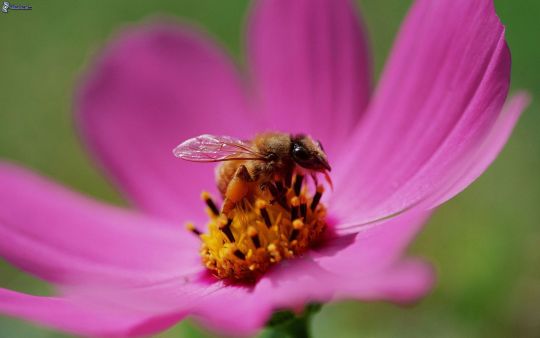
View On WordPress
0 notes
Text
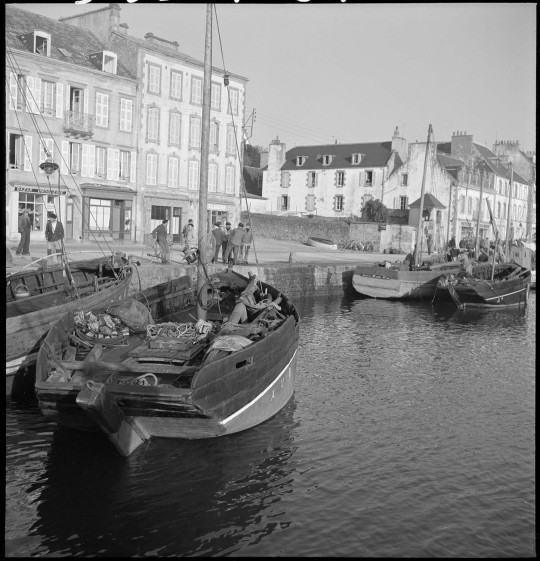
Denise Colomb (1902-2004)
Deux bateaux à quai côte à côte dont le 'Joseh Marie d’Nez'
Cap Sizun, Bretagne, Finistère, Audierne
1950
76 notes
·
View notes
Photo

Deux Colombes clock, des. 1926. Lalique. Opalescent glass, enameled metal, silvered metal, France.
370 notes
·
View notes
Text
So I requested to one of my mutuals to make a little head-canon/one shot of Rayman/Ramon being a dad (please go check them out, they are really cool! @salty-croissants ) anyways I wanted to do a little one shot of Bullfrog being a dad! So yeah enjoy!
Little thieves 
“Chéri! Où est mon uniforme ?” Bullfrog called out to his partner, “i thought i told you it’s hanging by our door” “I checked but it wasn’t there” you sighed as you separated the whites from the blacks, you just want to get the Landry done for the week. “I can go check again Cher” he said as he walked towards your shared room, he didn’t know where it could be..it couldn’t grow legs and walked outside. Just as he walked past his daughters room, he heard giggling..”hehe look! I’m a assassin!” He heard his daughter saying, he slowly peaked his head in their room to see that one of his girls was wearing his uniform, despite being a little too big for her..it was pretty cute. “It’s my turn now” “Nuh Uh! I’m not done with it” the two started to bicker and argue, before it could go into chaos, bullfrog came in and cleared his throat to get the little ones attention. “Soin d'expliquer?” He raises a brow as his girls lowered their heads in shame “Sorry Papa..” Bullfrog looked at them and sighed “why did you take my Uniform? et ne me mentez pas tous les deux ” he warned, the girls looked at eachother and at him. “We wanted to be like you..” Bullfrogs eyes soften, he found it sweet on how his daughters wanted to be like him..even though his job was..different..from the others. “mes colombes, thats very sweet of you but you must understand my job is very dangerous..but I do it to protect you two and Mama okay?” “Yes Papa” he kissed his girls forehead, “now can I have my Uniform back?”
I hoped you enjoyed this little one shot!
61 notes
·
View notes
Text
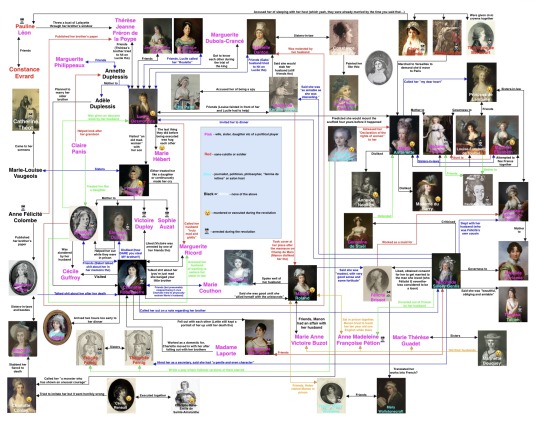
I decided to try this but for the girlies instead.
Are you sure want to click on ”keep reading”?
For Pauline Léon marrying Claire Lacombe’s host, see Liberty: the lives of six women in Revolutionary France (2006) by Lucy Moore, page 230
For Pauline Léon throwing a bust of Lafayette through Fréron’s window and being friends with Constance Evrard, see Pauline Léon, une républicaine révolutionnaire (2006) by Claude Guillon.
For Françoise Duplay’s sister visiting Catherine Théot, see Points de vue sur l’affaire Catherine Théot (1969) by Michel Eude, page 627.
For Anne Félicité Colombe publishing the papers of Marat and Fréron, see The women of Paris and their French Revolution (1998) by Dominique Godineau, page 382-383.
For the relationship between Simonne Evrard and Albertine Marat, see this post.
For Albertine Marat dissing Charlotte Robespierre, see F.V Raspail chez Albertine Marat (1911) by Albert Mathiez, page 663.
For Lucile Desmoulins predicting Marie-Antoinette would mount the scaffold, see the former’s diary from 1789.
For Lucile being friends with madame Boyer, Brune, Dubois-Crancé, Robert and Danton, calling madame Ricord’s husband ”brusque, coarse, truly mad, giddy, insane,” visiting ”an old madwoman” with madame Duplay’s son and being hit on by Danton as well as Louise Robert saying she would stab Danton, see Lucile’s diary 1792-1793.
For the relationship between Lucile Desmoulins and Marie Hébert, see this post.
For the relationship between Lucile Desmoulins and Thérèse Jeanne Fréron de la Poype, and the one between Annette Duplessis and Marguerite Philippeaux, see letters cited in Camille Desmoulins and his wife: passages from the history of the dantonists (1876) page 463-464 and 464-469.
For Adèle Duplessis having been engaged to Robespierre, see this letter from Annette Duplessis to Robespierre, seemingly written April 13 1794.
For Claire Panis helping look after Horace Desmoulins, see Panis précepteur d’Horace Desmoulins (1912) by Charles Valley.
For Élisabeth Lebas being slandered by Guffroy, molested by Danton, treated like a daughter by Claire Panis, accusing Ricord of seducing her sister-in-law and being helped out in prison by Éléonore, see Le conventionnel Le Bas : d'après des documents inédits et les mémoires de sa veuve, page 108, 125-126, 139 and 140-142.
For Élisabeth Lebas being given an obscene book by Desmoulins, see this post.
For Charlotte Robespierre dissing Joséphine, Éléonore Duplay, madame Genlis, Roland and Ricord, see Mémoires de Charlotte Robespierre sur ses deux frères (1834), page 76-77, 90-91, 96-97, 109-116 and 128-129.
For Charlotte Robespierre arriving two hours early to Rosalie Jullien’s dinner, see Journal d’une Bourgeoise pendant la Révolution 1791–1793, page 345.
For Charlotte Robespierre and Françoise Duplay’s relationship, see Mémoires de Charlotte Robespierre sur ses deux frères (1834) page 85-92 and Le conventional Le Bas: d’après des documents inédits et les mémoires de sa veuve (1902) page 104-105
For the relationship between Charlotte Robespierre and Victoire and Élisabeth Lebas, see this post.
For Charlotte Robespierre visiting madame Guffroy, moving in with madame Laporte and Victoire Duplay being arrested by one of Charlotte’s friends, see Charlotte Robespierre et ses amis (1961)
For Louise de Kéralio calling Etta Palm a spy, see Appel aux Françoises sur la régénération des mœurs et nécessité de l’influence des femmes dans un gouvernement libre (1791) by the latter.
For the relationship between Manon Roland and Louise de Kéralio Robert, see Mémoires de Madame Roland, volume 2, page 198-207
For the relationship between Madame Pétion and Manon Roland, see Mémoires de Madame Roland, volume 2, page 158 and 244-245 as well as Lettres de Madame Roland, volume 2, page 510.
For the relationship between Madame Roland and Madame Buzot, see Mémoires de Madame Roland (1793), volume 1, page 372, volume 2, page 167 as well as this letter from Manon to her husband dated September 9 1791. For the affair between Manon and Buzot, see this post.
For Manon Roland praising Condorcet, see Mémoires de Madame Roland, volume 2, page 14-15.
For the relationship between Manon Roland and Félicité Brissot, see Mémoires de Madame Roland, volume 1, page 360.
For the relationship between Helen Maria Williams and Manon Roland, see Memoirs of the Reign of Robespierre (1795), written by the former.
For the relationship between Mary Wollstonecraft and Helena Maria Williams, see Collected letters of Mary Wollstonecraft (1979), page 226.
For Constance Charpentier painting a portrait of Louise Sébastienne Danton, see Constance Charpentier: Peintre (1767-1849), page 74.
For Olympe de Gouges writing a play with fictional versions of the Fernig sisters, see L’Entrée de Dumourier à Bruxelles ou les Vivandiers (1793) page 94-97 and 105-110.
For Olympe de Gouges calling Charlotte Corday ”a monster who has shown an unusual courage,” see a letter from the former dated July 20 1793, cited on page 204 of Marie-Olympe de Gouges: une humaniste à la fin du XVIIIe siècle (2003) by Oliver Blanc.
For Olympe de Gouges adressing her declaration to Marie-Antoinette, see Les droits de la femme: à la reine (1791) written by the former.
For Germaine de Staël defending Marie-Antoinette, see Réflexions sur le procès de la Reine par une femme (1793) by the former.
For the friendship between Madame Royale and Pauline Tourzel, see Souvernirs de quarante ans: 1789-1830: récit d’une dame de Madame la Dauphine (1861) by the latter.
For Félicité Brissot possibly translating Mary Wollstonecraft, see Who translated into French and annotated Mary Wollstonecraft’s Vindication of the Rights of Woman? (2022) by Isabelle Bour.
For Félicité Brissot working as a maid for Louise Marie Adélaïde de Bourbon, see Mémoires inédites de Madame la comptesse de Genlis: sur le dix-huitième siècle et sur la révolution française, volume 4, page 106.
For Reine Audu, Claire Lacombe and Théroigne de Méricourt being given civic crowns together, see Gazette nationale ou le Moniteur universel, September 3, 1792.
For Reine Audu taking part in the women’s march on Versailles, see Reine Audu: les légendes des journées d’octobre (1917) by Marc de Villiers.
For Marie-Antoinette calling Lamballe ”my dear heart,” see Correspondance inédite de Marie Antoinette, page 197, 209 and 252.
For Marie-Antoinette disliking Madame du Barry, see https://plume-dhistoire.fr/marie-antoinette-contre-la-du-barry/
For Marie-Antoinette disliking Anne de Noailles, see Correspondance inédite de Marie Antoinette, page 30.
For Louise-Élisabeth Tourzel and Lamballe being friends, see Memoirs of the Duchess de Tourzel: Governess to the Children of France during the years 1789, 1790, 1791, 1792, 1793 and 1795 volume 2, page 257-258
For Félicité de Genlis being the mistress of Louise Marie Adélaïde de Bourbon’s husband, see La duchesse d’Orléans et Madame de Genlis (1913).
For Pétion escorting Madame Genlis out of France, see Mémoires inédites de Madame la comptesse de Genlis…, volume 4, page 99.
For the relationship between Félicité de Genlis and Louise de Kéralio Robert, see Mémoires de Madame de Genlis: en un volume, page 352-354
For the relationship between Félicité de Genlis and Germaine de Staël, see Mémoires inédits de Madame la comptesse de Genlis, volume 2, page 316-317
For the relationship between Félicité de Genlis and Théophile Fernig, see Mémoires inédits de Madame la comptesse de Genlis, volume 4, page 300-304
For the relationship between Félicité de Genlis and Félicité Brissot, see Mémoires inédites de Madame la comptesse de Genlis, volume 4, page 106-110, as well as this letter dated June 1783 from Félicité Brissot to Félicité Genlis.
For the relationship between Félicité de Genlis and Théresa Cabarrus, see Mémoires de Madame de Genlis: en un volume (1857) page 391.
For Félicité de Genlis inviting Lucile to dinner, see this letter from Sillery to Desmoulins dated March 3 1791.
For Marinette Bouquey hiding the husbands of madame Buzot, Pétion and Guadet, see Romances of the French Revolution (1909) by G. Lenotre, volume 2, page 304-323
Hey, don’t say I didn’t warn you!
#french revolution#frev#marie antoinette#pauline léon#claire lacombe#théroigne méricourt#reine audu#charlotte robespierre#éléonore duplay#élisabeth duplay#élisabeth lebas#lucile desmoulins#louise de kéralio#félicité de genlis#félicité brissot#mary wollstonecraft#manon roland#madame royale#charlotte corday#albertine marat#simonne evrard#catherine théot#madame élisabeth#sophie condorcet#françoise duplay#cécile renault#gabrielle danton#louise sebastien danton#theresa tallien#theresa cabarrus
173 notes
·
View notes
Text
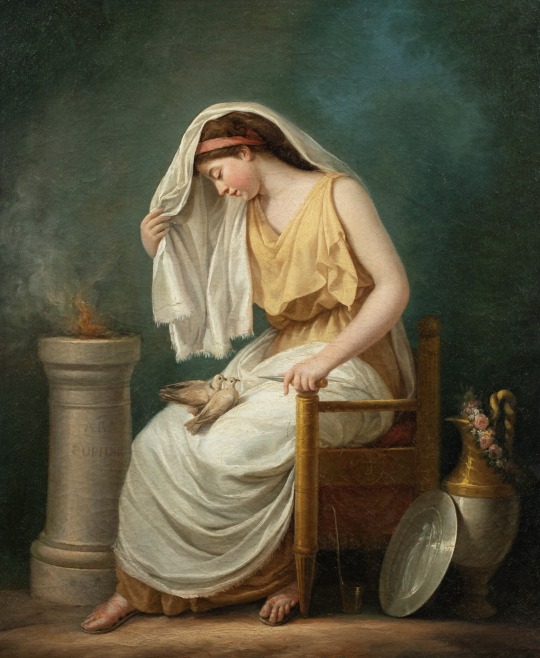
Muse avec Deux Colombes (Muse with Two Doves) by the Circle of Louis-Jean-François Lagrenée (1724-1805)
72 notes
·
View notes
Photo
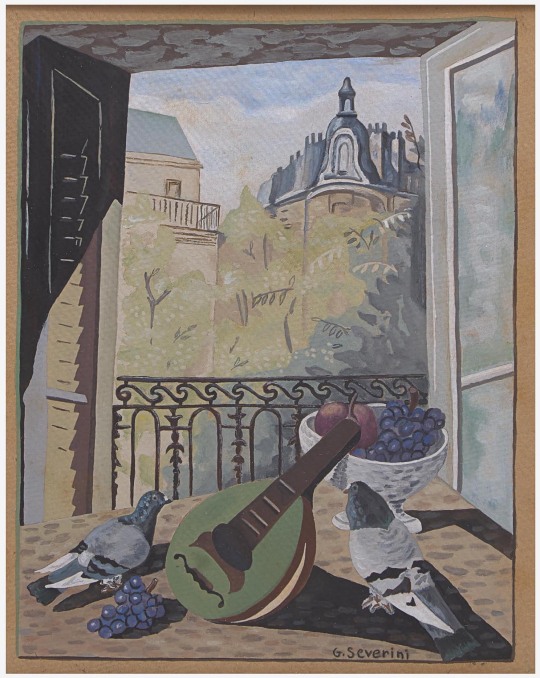
Gino Severini (Italian, 1883-1966), Nature morte avec une mandoline et deux colombes [Still life with a mandolin and two pigeons], c.1930. Tempera on card, 34 x 24 cm.
161 notes
·
View notes
Text
Matchs de Poule
Bonjour à tous.tes, on a reçu énormément de suggestions, c'était super. En tout on a 160 livres et BD pour le tournoi !
On va donc commencer par des poules, pour ne garder que 64 livres. Les groupes sont notés ci-dessous (on ajoutera les liens pour les votes au-fur et à mesure qu'ils seront publiés), il y en a 32. Les deux livres recevant le plus de votes de chaque groupes seront séléctionnés pour la suite du tournoi.
Groupe 1
Le Château d'Anne Hiversaire ; Le Petit Prince ; Les Chants de Maldoror ; La Geste des Chevaliers Dragons ; L'Incal
Groupe 2
Les Furtifs ; Un Jacques Cartier Errant ; Même pas Mort ; Yoko Tsuno ; Les Trois Mousquetaires
Groupe 3
Un Sac de Billes ; Malpertuis ; Vango ; Mémoires de Louise Michel ; Les Schtroumpfs
Groupe 4
Femmes d'Alger dans leur appartement ; La Quête de l'Oiseau du Temps ; Bérénice ; La Rose Ecarlate : Vingt Mille Lieues sous les mers
Groupe 5
U4 ; Le Jardin, Paris ; La Passe Miroir ; Romancero aux étoiles ; L'île mystérieuse
Groupe 6
Les 4 As ; Les amis inconnus ; Tobi Lolness ; Persepolis ; Le Jeu de l'Amour et du Hasard
Groupe 7
Vendredi ou la vie sauvage ; L'Autre ; Oh boy! ; Julie, Claire, Cécile ; Le Journal Tintin
Groupe 8
Etudes et Préludes ; Lou! ; Sur les Terres d'Horus ; L'élégance du Hérisson ; Parle-leur de batailles, de rois et d'éléphants
Groupe 9
Lancelot-Graal ; Les Fleurs du Mal ; Chien Blanc ; Mélusine ; Une Tempête
Groupe 10
La Métaphysique du Vampire ; Pot Bouille ; Les Mémoires d'Hadrien ; La bête humaine ; Le Misanthrope
Groupe 11
Tara Duncan ; Trois Oboles pour Charon ; Gaspard de la nuit ; Le Pacte des Marchombres ; Sambre
Groupe 12
Kid Paddle ; Père Castor ; Dom Juan ; Ces Jours qui Disparaissent ; Le Message
Groupe 13
Astérix ; Les animaux dénaturés ; Fantômette ; Germinal ; Mathieu Hidalf
Groupe 14
Le Cid ; Les Carnets de Cerise ; Tant qu'il le faudra ; Rhinoceros ; Dans la Nuit Blanche et Rouge
Groupe 15
Thorgal ; L'arbre à soleils ; Les Faux Monnayeurs ; Alcools ; La Mécanique de Cœur
Groupe 16
Aya de Yopougon ; Chat Noir ; Blake et Mortimer ; Le Survenant ; Le Deuxième Sexe
Groupe 17
Au Bonheur des Dames ; Nadja ; Mille francs de récompense ; Le tour du monde en 80 jours ; Le Butterlyland
Groupe 18
A comme Association ; La Nuit des Temps ; La Guerre de Troie n'aura pas lieu ; Quatrevingt-treize ; Une Famille aux Petits Oignons (Histoires des Jean-Quelque-Chose)
Groupe 19
Le forçat innocent ; Phaenomen ; A la mystérieuse ; Le Livre des Etoiles ; Le Livre de Perle
Groupe 20
L'écume des jours ; Max et Lily ; Petit Ours Brun ; Les Dingodossiers ; Cyrano de Bergerac
Groupe 21
Thérèse Desqueyroux ; La fin du monde ; 47 cordes ; Garin Trousseboeuf ; Oksa Pollock
Groupe 22
Le Grand Secret ; Lucky Luke ; L'Illusion Comique ; Pardonnez nos offenses ; Les Liaisons Dangereuses
Groupe 23
Un Secret ; Fortunes ; Querelle de Roberval ; Manuel de savoir-vivre à l'usage des rustres et des malpolis ; 38 mini westerns (avec des fantômes)
Groupe 24
Les Misérables ; Magarcane ; Frangine ; Les Eveilleurs ; Archives des Anges
Groupe 25
Le Dit de Vertigen ; Spirou et Fantasio ; Antigone ; Le Prince Eric ; Les Colombes du Roi-Soleil
Groupe 26
Cédric ; Sept Jours pour une Eternité ; La Petite Fille de Monsieur Linhl ; Gouverneurs de la Rosée ; Gaston Lagaffe
Groupe 27
Corps et Âmes ; Claudine ; L'œil du loup ; Boule et Bill ; Le Dernier Jour d'un Condamné
Groupe 28
Les Fables de La Fontaine ; La Dame Pale ; Chansons ; Marsupilami ; Les Aventures de Loupio
Groupe 29
L'Enfant de la haute mer ; Du Domaine des Murmures ; La Bibliothécaire ; Ondine ; Dieu n'a pas réponse à tout
Groupe 30
Le Horla ; Réparer les Vivants ; Freaks' Squeele ; De Cape et de Crocs ; L'automne à Pékin
Groupe 31
Ouragan ; Contes des cataplasmes ; Le Monde, Tous Droits Réservés ; Vipère au Poing ; Comment Wang-Fo fut sauvé
Groupe 32
Les Derniers Contes de Canterbury ; Le Compte de Monte-Cristo ; Storm ; Manifeste Assi ; Les Lumières d'Oudja
#bande dessinée#france#french#french side of tumblr#frenchblr#littérature francophone#upthebaguette#français#littérature française#francophone#info !!
29 notes
·
View notes
Text
Dix Sept. 26.08.2023
Dix-sept marches et il est à l'autel. Dix-sept seulement. La mairie est inondée de soleil, de fleurs et de rubans partout, et d’une lueur insupportable. Le cœur bat dans la poitrine jusqu'à devenir assourdissant, comme si le son interne des tambours coupait tous les sons externes. Un piano à queue se dresse à droite de la salle de cérémonie, ses côtés laqués blancs étincelants. Le couvercle est ouvert et son ventre sans fond scintille, il est plein de roses. Une jeune fille en robe de mariée blanche est assise sur une chaise près du piano : le satin et la dentelle luisent, soulignant les débordements nacrés de la peau délicate, sa fragilité et son impuissance. Une coiffure haute s'élève en vagues sombres sur un cou fin, comme un nuage d'orage sur un tronc de bouleau. Il ne voit pas son visage, car il s'approche de la pianiste par derrière. Il ne voit jamais son visage.
2. Dix pas, le piano se rapproche, invités et témoins se figèrent d'anticipation. Peut-être que la musique est bonne. Elle a dû les émouvoir, réveiller des prémonitions et des souvenirs dans leurs âmes. Amira était une merveilleuse pianiste. Le soleil perce les épaisses baies vitrées en les irisant. Ici, ils sont allongés sur le piano avec deux bandes écarlates, le barrant, les notes posées sur le pupitre, les touches se rapprochant des doigts fins en gants de mariage blancs. Il aimerait entendre ce qu'elle joue, mais son cœur continue de s'étourdir, éclatant de temps en temps de douleur. Il arrive.
Cinq pas et il sursaute sous le tonnerre des applaudissements. Le jeu est terminé et la mariée se lève du piano, repousse maladroitement la chaise, redressant sa jupe trop longue, dénouant la traîne sous ses pieds. Elle se tient face à ceux qui sont assis et debout, et les boucles de sa coiffure qui encadrent son visage le cachent complètement de son regard. Bientôt.... Il reste un pas et il tend la main pour lui toucher légèrement le coude, elle commence à se retourner dans sa direction. Lentement, comme à travers l'eau, comme à travers un verre visqueux, il voit comment une volée de colombes arrive, battant de manière assourdissante leurs ailes blanches, même s'il n'est pas encore temps de les relâcher. Des pétales et des plumes remplissent l'air, clignotant devant ses yeux... l'empêchant de voir son visage, il ne la voit jamais .
Il passe ses mains sur son visage et sent de la sueur mêlée de larmes sur ses doigts. Le cœur bat toujours de façon assourdissante. Mais non, on dirait que les voisins frappent au mur. Il devait encore crier dans son sommeil. Il crie toujours quand il rêve d'elle. Et il ne voit jamais son visage. Il ne voit pas dans son sommeil.
Il quitta son lit et entra dans la cuisine, fume et essaie de se calmer... Une autre nuit d'insomnie.
Les-portes-du-sud
9 notes
·
View notes
Text
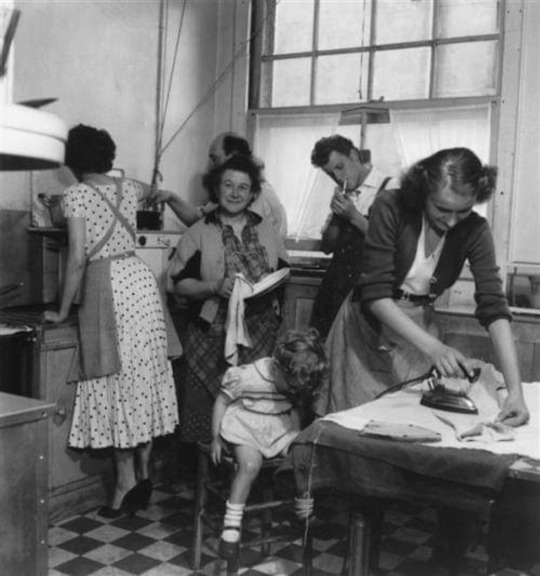
Bon jour et bon Week-end ☕️ 🥐🍊
Cohabitation de deux familles 🗼Paris 1953
Photo de © Denise Colomb (Donation)
#photooftheday#photographie#black and white#vintage#denise colomb#paris#famille#bonjour#bonweekend#fidjie fidjie
41 notes
·
View notes
Note
Pour ne pas encombrer le poste original, voici une petite liste de grands classiques et de romans français moins classiques mais avec lesquels j'ai grandi (le temps entre parenthèses est l'époque à laquelle le livre se passe pas la date d'écriture) :
Le Prince Eric, de Serge Dalens (1930's-40's en Scandinavie)
Marie Antoinette, le jardin secret d'une princesse, d'Anne-Sophie Sylvestre. (1770's)
Complot à Versailles, d'Annie Jay
Les Orangers de Versailles et L'espionne du roi-soleil d'Annie Pietri.
Les Colombes du Roi-Soleil, d'Anne-Marie Desplat-Duc (17e siècle)
Garin Trousseboeuf, d'Evelyne Brisou-Pellen (Moyen-Âge)
Chewing-Gum et Spaghettis, Le Temps se Gâte à Zakopâne, Avanti la Musica et autres Charles Exbrayat. La plupart de ses livres sont tristes mais les comédies sont excellentes.
Vango, Tobie Lolness et Alma, le vent se lève! de Timothée de Fombelle
Strom, d'Emmanuelle et Benoît de Saint-Chamas
Les Lumières de Paris, de Gwenaelle Barussaud
Les Soeurs Espérance, par Sophie de Mullenheim.
Magarcane, par Matthieu Bobin
Il y en a encore plein mais c'est un début.
Merci beaucoup ! C'est loin d'être "sans fin" comme c'était vanté dans le poste original mais c'est un très bon début. L'équipe est fan d'Exbrayat aussi, alors on ajoute à la liste ses Quadrille de Bologne et Mandolines et Barbouzes. Gwenaelle Barussaud a également fait les Demoiselles de l'Empire, pour les passionnés d'histoire napoléonienne qui voudraient quelque chose dans le même style narratif que les Colombes du Roi-Soleil. Et la bibliographie complète d'Evelyne Brisou-Pellen est très appréciée par les enfants (des deux sexes) de l'un des membres de l'équipe, pour tous ceux qui veulent des romans historiques bien documentés pour leurs enfants.
15 notes
·
View notes
Note
la culture française c'est avoir une passion sans bornes pour Versailles et arriver sur tumblr pour trouver genre deux personnes qui ont lu les Colombes du Roi-Soleil dont une qui se souvient plus de l'intrigue
.
2 notes
·
View notes
Text


Il faut que tu comprennes que mon bonheur n'existe que parce que tu en fais parti. Je ne peux pas simplement te regarder partir, mal, sans être à tes côtés. Ni supporter que tu choisisses pour moi ce qui doit faire mon bonheur.
Tu pointais mes traumas pour ne pas penser aux tiens et tu refuses qu'ils prennent sur mon bien être. Pourtant toi tu as été là quand j'étais au fond, je peux et je veux être là pour toi aussi. Seul on va plus vite, à deux on va plus loin. Tu n'as pas à garder tout ton mal-être pour toi, je t'aime et je veux t'aider. Je ne ferai pas le travail pour toi, mais je veux t'aider, t'épauler, être à tes côtés quand tu grandis.
J'ai bien compris, je t'ai entendu, je sais ce qu'il y a en toi. Ton besoin de te retrouver ne peut se faire que seul, sans personne qui ne prenne la place dans ta tête. Mais sache que tu n'es pas seul. Que je vais t'attendre. Tu veux que je trouve quelqu'un qui peut me donner ce que j'attends, mais toi tu peux me le donner. Pas aujourd'hui, pas demain, mais ce n'est pas grave. Je suis patiente. Patiente et amoureuse. De toi, de ce que tu étais, de ce que tu es, de ce que tu sera. Je te veux égoïste, je te veux franc, je te veux vivant. Je veux des plages et des montagnes, des champs de souvenirs et des veillées au feu de nos baisers.
Je suis triste de ce qui t'a mené à être là, je suis triste de devoir lâcher cette main le temps que tu te retrouves. Il n'y a aucune certitude que je la reprenne, aucune promesse, aucun mot, papier, étoile, dieu, qui ne puisse me jurer que l'on se retrouvera. Juste l'espoir qu'un jour tu te réveilles en pensant à mon dos contre le tien, au café que je te prépare. Être compagnon du quotidien et de nos folies. Je veux pouvoir t'épauler quand tu es fatigué, te faire rire quand tu es plein de courbatures, accueillir ta tristesse quand la vie est rude.
Je veux que tu n'ais pas à te dire à ma place ce qui est bon ou non. Je peux te laisser partir deux ans, si, au moment où tu passes la porte, tu me dises que tu reviens. Que je reçoive la certitude que tu penses à moi de temps à autre, et qu'à ton retour l'appartement soit lumineux de nos retrouvailles. Je veux partager ton affection et ton bonheur. Que l'on se promène sur la plage avant de rejoindre nos amis. Que tu sois loin des vicissitudes de ce monde. Sans doute grandir dans l'idée des martyrs m'a donné la capacité d'endurer plus que ce que certains ne pourraient, car j'ai gardé cette naïveté christique de "l'après". Après 40 jours de déluge, où l'espoir de la colombe avec sa branche, cette histoire coule dans mon esprit. Je navigue dans une coquille de noix, de courant d'air en raz de marée, espérant retrouver l'arbre au sommet duquel jirai écrire.
Dans ce jardin je creuse un trou, dans lequel je pose, maigres dons, les lettres, quelques cheveux et je murmure ton nom. Sans doute que les roseaux qui pousseront à cet endroit soupirerons ton nom aux secrets perdus.
[Août 2023, lettre non envoyée]
3 notes
·
View notes
Text
Pigeons
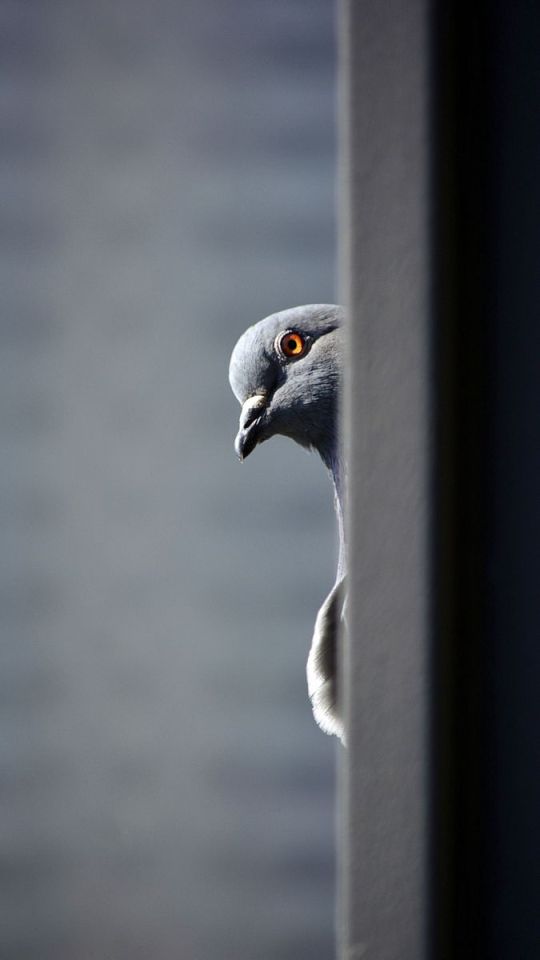
Peu de Moscovites osaient manger du pigeon, parce que le Saint-Esprit est peint en forme de colombe. - Voltaire -

Deux pigeons s'aimaient d'amour tendre ; L'un d'eux, s'ennuyant au logis, Fut assez fou pour entreprendre Un voyage en lointain pays . - La Fontaine -

Où il y a pigeon, pigeon y vient ....

Si vous vous contentez d'accepter des miettes, ne soyez pas surpris d'être pris pour des pigeons.
- Alain Leblay -
Je crois que les gens devraient rester ensemble toute leur vie, comme les pigeons. Ou les catholiques.
- Woody Allen -
13 notes
·
View notes
Note
I’ve seen on Tumblr that Camille wanted to marry Lucile’s mother, Annette Bosdeveix. Do you know what the source is for that and is there anything else we know about Camille and Annette’s relationship? Thank you!
We actually know quite a bit about the relationship between Camille and Annette. Not long ago, eight letters from the former to the latter written between the years 1784 - 1790 were published for everyone to read. I won’t translate them in their entirety here though, both because I think this would get way too long if I did, and because I sometimes honestly can’t fully make out what Camille is trying to say.
Camille and Annette’s first meeting dates back to the spring 1783, when the former is a 23 year old law student and the latter a 32 year old mother of two, married since 15 years back. Camille first spots Annette walking in the Luxembourg garden with her daughters, Lucile (13 years old) and Adèle (9 years old). He describes this meeting in the following verse, dedicated to ”Mme D, who always goes for a walk with her two demoiselles” and published in the l’Almanach littéraire in 1784 and the Affiches du Beauvaisis in 1785:
Everyone stops and says: ”how beautiful she is!”
As for me, I’ve never seen her.
But that doesn’t stop me from asking: ”is she a goddess or a mortal?”
How can I hold myself back, seeing so many attractions,
And two doves following her.
(Chacun s’arrête, et se dit, ”qu’elle est belle!”
Pour moi, je ne la vis jamais .
Sans demander: est-elle ou déesse ou mortelle?
Pouvais-je m’y réprendre, en voyant tant d’attraits,
Et deux colombes auprès d’elle.)
Camille eventually approaches Annette and the two start talking about poetry and Camille’s literary projets. Annette consults him to meet one M. Neveu, and even fixes and interview between the two. From a letter Camille writes her on July 10 1784 (the first of those recently published) we do however learn that he wants their relationship to go deeper than that:
It was doing you justice to believe that a musician presented to me by your hand could not fail to be preferred to all the ini [sic]. […]My job was to get acquainted with Madame Duplessis, and instead of taking me into her apartment, I was taken to the house of a musician. You will agree, Madame, that this is perfidy. Besides, it is up to you that tomorrow my work will be in the hands of Mr. Neveu, and since it costs you so little to procure it for him, if this little costs you still too much, I will see that you want me to renounce for ever sweeter hopes, and I will confine myself to admiring you from afar in the alleys of the Luxembourg.
The letter does however also make it clear that Camille only sees their relationship as platonic:
That among the authors, you choose the one whose poetry dates only from your walks in the Luxembourg and the day he saw you there, it is a very natural thing and I do not understand your excessive delicacy towards a young man who, for fifteen months, has given you such multiplied proofs that platonic love is not a chimera.
So no, the idea that Camille sought to marry Lucile’s mother would appear to be false. It can also be added that Annette wasn’t the only woman he wrote love verses to around this period, evidently a big interest of his. To a lady present for the divorce trial of one Maître Gerbier, Camille adressed the following verse:
De milles qualités nature te dota;
Sexe charmante, sexe si tendre;
Par un seul don le ciel nous consola.
Il nous fit les plus forts; ce bien ce qu’il nous laissa,
C’est le plaisir de te défendre.
In July 1783 he also assured one demoiselles de Compiègne that ”I owe the majority of verses I’ve written this year to you, it’s you who have inspired me.” The same year, the Journal de Paris published a poem he wrote for one Mme de Courve, and the year after that Camille published a similar verse adressed to Mme de La Lande in l’Almanach littéraire.
In 1786 Camille, sad over Annette having parted for her country house at Bourg-la-Reine for the summer, wrote her the following verse:
Me voilà donc après trois ans
Toujours à la premiere page
Du plus ennuyeux des romans;
On m’eût fait languir moins longtemps
Si j’avais été plus volage.
Je le disais, et cependant,
Pour vous voir encore un instant
Je volais sur votre passage;
Et quand vous fuyiez de ces lieux
Les pleurs qui coulaient de mes yeux
Soutanient bien mal ce langage
Ce n’est point cette majesté
Et cette taille de déesse
Et cette grâce enchanteresse
Et ces beaux yeux, quand la tendresse
En adohcissait la fierté
Que je vais regretter sans cesse.
Mais que j’aime à vous voir sur le déclin du jour,
Sous un ombrage solitaire
À vos enfants souriant tour à tour
Insensible au charme de plaire,
Insensible aux plaisirs qu’offre l’amour,
Ne goûter que ceux d’être mère
Ah! Lorsque l’encens le plus duox
Sur la terrasse vous appelle,
Pourquoi vous éloigner de vingt cercles jaloux?
D[uplessis], est-ce, dites-nous,
Crainte d’alarmer un époux?
Est-ce honte d’être la plus belle ?
C’était ces regards si touchants,
Ce son de voux si doux, cette mélancolie,
Ces fleurs que vous jetait Julie;
C’était ces deux boutons naissants
Près d’une rose épanouie,
Qui m’ont conduit à vos genoux
Et m’auraient fait trouver si doux
De passer près de vous ma vie.
Il vous eût peu coûté de captiver mon cœur
Vous voir est plus que posséder une autre,
Et je pensais que faire mon bonheur
Ce serait ajouter au vôtre.
One year later he asked Annette and her husband Claude if one day, when his financial situation had improved, he could marry their oldest daughter, a request that was rejected. Camille did however not give up so easily, in March the same year he wrote a letter to Claude refuting all of his charges as to why the idea was a bad one. When that didn’t bear any fruit he instead tried to influence Annette, which gives us the following letter from December 5 1787:
[…] Judge if the noise of this carriage pleases me, when it warns me that you are driving your daughter into the world where she is going to find so many admirers. Thus will all my dreams vanish. Do I dare, however, Madame, to remind you of what you told me, that you would put no ambition in the choice of son-in-law, and that my profession seemed to you quite honest and quite noble. This is what inspired me with some confidence. Must you take away from me today a hope so dear to the attachment that I have nurtured for so many years to come out of my heart with hope! […] I beg you, Madame, do not read this letter to your husband, with whom I would still pass for a madman, it is to you that I am writing it, to you who do not return my letters to me and that I I never left, without leaving your presence, if not full of contentment, at least full of patience. Shall I not have the pleasure of conversing with you at least sometimes? […] I found verses printed and maimed in provincial notices which I had addressed to you; I take the liberty of sending them to you and of renewing my homage to you. Will you do nothing for your poet?
On March 4 1788 he once again writes to Annette to inform her about his first real success as a lawyer, hoping that might persuade her to hand over her daugther:
[…] Once you have read my memoir, and compared it with the feeble consultation of Me Fournel who nevertheless enjoys such a great reputation, I dare to imagiene, Madame, that you will forgive me for having also hoped for some consideration; and that you will forgive me for having nourished another much more cherished hope, remembering that M. Duplessis, a year before yesterday, did not even demand that I should become a famous lawyer in order to obtain Mademoiselle Duplessis. Now this hope is weakening every day, I see that everyone has the same eyes for your daughter as I do, it seems to that in every moment someone comes to ask for her hand. I am waiting for my justificatory memorandum which will finally fix my fate and make access to you either open or closed forever. The encouragement that has sustained me most in this work to which I have sacrificed all my business has been the hope of presenting it to you. Is it possible, Madame, that when the image of happiness that I find with you detaches me from all societies and makes them bland and unbearable, you never tire of pushing me away from yours, which would take the place of the whole universe?
But twelve days later we find another letter from Camille, where we learn that Annette had once again responded with disapproval and even asked him to stop vistiting her house:
What harm have I done you for you to treat me so harshly? And how could a letter which I wrote only to persuade you offend you and draw such a bitter response from me? I don't want it to be your fault if I conceived a mad passion, but don't we owe anything to those who are made to suffer even without our fault? Could you not make me understand in a less mortifying way, that there was madness in my pursuit, that the disproportion of fortunes (which I only knew about yesterday) was an insurmountable obstacle; you would have seemed to pity me, and I could not have complained of you, on the contrary, I would have thanked you for the care you took to prevent a disastrous passion, I would have believed myself well treated; for you know better than anyone that it takes very little to make me believe it. Sometimes you have really put my self-esteem to severe trials! One does not die of spite, if so I would have already have died a thousand times. But all it would take is a glance, half a smile, to bring me back. Even today, at this moment, all my self-love is incurable! I am trying to reconcile the harshness of what you have just written to me, with the very different speech that you gave me, and I am trying to interpret it favorably. It seems to me that the remedy you employ is either too violent or too little. It's up to you to make yourself lovable anywhere other than at my place. Is it just a defence? Or is it not also a permission? Forbidden to make myself friendly in your eyes at your place, permission to make myself friendly, if possible, in the Luxembourg. This is what it means to be a lawyer. […] This leads me to believe that your answer does not carry a permanent banishment, that was what you repeated for me in the Luxembourg, not at the moment, and besides, it's still a letter that I received from you, which is something. You see Madame that I am laughing and crying at the same time. Thank you, one more word from you. Or, treat me so harshly that you force me to hate you and even your demoiselles; or, if your feelings have not changed since the conversation I had the honor of obtaining from you in the Luxembourg, refuse me permission to come to your house now, so as to give me the hope of one day obtaining it.
After this, it would appear the two cut contacts for a while. In a letter dated October 27 1788 to his best friend from school Pierre Jean André Grasset, Camille spoke disapprovingly of the whole family, even accusing Annette of wanting to seduce him:
I always continued to chase the same hare, the mother lured me into the house, the father promised me his daughter, gave me his word of honour; the girl made me think she wanted me; a few days later came a terrible storm which threw me far from the door, farther than ever. […] I could not imagine that by courting the girl I had pleased the mother, and that she wanted to take a chance on me; I could not trust the rascal of a servant who went home to me to invite me to take lodgings in the apartment next to theirs, that the girl was flirtatious, that it was was the mother who liked me, that I would succeed. Today the scales have fallen from my eyes; but then I thought they wanted to test me, a new promise to give her to me, a new rupture.
Camille and Annette picked up contacts again in 1790, with Camille sometimes even being invited into the apartment again. Camille was once again hoping to be able to marry Lucile, and this time he started using the contacts he’d gained as a journalist to impress her parents. On April 15 he writes ”It was M. Linguet I showed you this morning through my window,” and two weeks later he told her that Mirabeau and Emmery were coming to visit their country house at Bourg-la-Reine together with him. Annette was however still hesitant, causing Camille to grow desperate:
(April 14 1790)
If you knew what trap has been laid for me, you would have compassion for me. I can clearly see that I am no happier in friendships than I am with love… It is not that I believed for a moment in calumnies; it is thus so, I said to myself, that they slandered me to Madame Duplessis, it is by these artifices that they closed their door to me. However, I was only asked to suspend my judgment, I was to have some clarification this morning for which I would be grateful. I went to look for it and saw only a gross conspiracy against my happiness. I don't know who to trust in the world anymore. Madame, you have sometimes shown interest in me, have pity on my situation; I no longer dare to come to your house, three times I have been refused entry, but deign to give me a moment's interview to unravel this riddle for you, and don't think that I could ever believe that Mademoiselle Lucile and M. Duplessis deceived me so cruelly. Virtue and sensibility have a physiognomy that art does not counterfeit. I distrust all men now, but something tells me that my trust would not be betrayed if I place it in you without reserve. […]This number which belonged to you, since you had it made for me in such a short time, you had the cruelty to send it back to me without wanting to read it.
(April 15 1790)
Your note would be an answer to my letter, if it was to alarm you that I had asked you for an interview. I read there this answer: of such kind as the calumnies of which you speak, they are so devoid of verisimilitude that it is impossible for them to shake my security, and yet it is useless to grant you the interview that you ask for. But, Madame, it was for me that I requested this interview. It is for me alone that I beg you to have compassion. After seven years of the most constant and most unfortunate passion, at least leave me the sweetness of thinking that the beauty I loved was worthy of being so idolized, that I only have myself to blame, and not nature, which has not made me the one who was to touch her heart. I can no longer be happy, but to be less miserable I need someone to convince me that I was not used as a toy... […] Madame, you have given me marks of interest which I oppose in the bottom of my heart to all these thoughts which sometimes arise there, according to which you amuse yourself by tormenting my life. Add this new brand of benevolence. Grant me an interview, I beg you. Despite all the harm you have done me, I believe that Mademoiselle Lucile's heart is modeled after yours; I think they are both excellent. You don't want to remember that day when you promised me the hand of your dear daughter, or when you assured me that you could dispose of her heart. Why did you promise me what was not in your power? For what? […] What have I done that could have made me be refused three times at your door? If only you knew how much these refusals humiliate me, drive me to despair. I felt terrible last Saturday night. I implore you, Madame, to at least grant me an extraordinary interview today.
(May 10 1790)
[…] Did you notice how Mademoiselle Lucile sent me away cruelly yesterday? But you must always admire her more and more and she must be allowed to have a little pride. I really hope that now at least, I have no more new talents to discover in her, if she has any that I still don't know about, please hide them from me. I kiss your hands; for Mademoiselle Lucile there is no way to kiss hers even with gloves on. However, Madame, you are so much loved. What hurt you yesterday has hurt your celestial Lucile so much that if you wanted to take my interests to heart, I would hope for everything. Forget what she forbade you.
But on December 11 Annette and Claude finally agreed to let Camille marry Lucile (I’ve not been able to discover he exact reasons for their change of heart), and as can be seen through the following letterCamille sent his father the same day, Annette was happy with the decision:
This charming Lucile, whom I have talked to you so much about, whom I have loved for the past eight years, at last her parents give her to me and she does not refuse me. Her mother just came to tell me the news, crying of joy. […] When her mother told me a moment ago, she brought me to her room; I threw myself on Lucile’s lap; surprised at hearing her laugh I open my eyes, hers were in no better state than mine, she was all in tears, she was even crying profusely and yet she was still laughing. I have never seen such a delightful spectacle, and I would not have imagined that nature and sensibility could unite these two contrasts to such an extent.
Eightteen days later Annette and the rest of the family attended the couple’s wedding.
After Camille had gotten his Lucile, no more letters from him to Annette are conserved. We do however know through several other pieces that they remained close afterwards regardless. After their marriage, Camille and Lucile moved to 1 Rue de Théatre Francais (today 22 Rue de l’Odéon), just a two minute walk from Lucile’s childhood home on 22 Rue de Condé. From the diary Lucile kept 1792-1793 we see that Annette was a frequent visitor to the house. Annette also got to know some of Camille’s collegues, such as Danton, who Lucile asks her to give her news about in a letter dated February 16 1792, Fréron, who nicknamed her Melpomène and came to visit their country house, and Robespierre, who she might have planned to marry off her second daughter to. When Annette’s husband was arrested as suspect in January 1794, Camille protested against it both at the Convention and in the Vieux Cordelier.
Once Camille himself was arrested, Annette was reportedly in despair. In his third and final prison letterto Lucile, Camille reports the following:
Last evening my heart broke when I saw your mother in the garden. A mechanical movement threw me on my knees against the bars; I clasped my hands as if imploring her pity, she who moans, I am sure of it, in your bosom. Yesterday I saw her pain, in her handkerchief and her veil which she lowered, unable to bear this spectacle. When you come, let her sit a little closer with you, so that I can see you better.
Camille thought about Annette too, in the same letter he reports about this dream he’s just had:
Heaven took pity on me. Only a moment ago, I saw you in a dream, I embraced you in turn, you, Horace and Daronne (nickname for Annette) who was at our house. […] Farewell Lucile, my Lucile! My dear Lucile! Farewell Horace, Annette, Adèle, farewell my father!
After the death of Camille and Lucile, Annette worked together with Camille’s old friends and collegues Brune, Duplain, Panis and Fréron to get back Camille and Lucile’s confiscated effects and make sure their son Horace, who she adopted, got a good education. She evidently didn’t blame Camille for her daughter’s death, as she in 1800, when writing to Lucien Bonaparte to ask for the disbursement of the pension for Horace, voted through four years earlier by the Conseil de Cinq-Cents, said that his father was ”Camille-Desmoulins, this hero of republican humanity.”
That it was a glorified image of his father Annette provided her grandson with is also proven through a letter Horace wrote in 1822 to the editor Barrière, claiming that his father had never written anything called l’Histoire des Brissotins, in reality a pamphlet essential in the purge of the girondins…
Sources for everything that doesn’t have a link to it: Camille et Lucile Desmoulins: un rêve de république (2019)
35 notes
·
View notes
Text
24 Days of La Fayette: December 11th - Jean-Louis and Jacques-Alexandre Romeuf
Jean-Louis Romeuf (and his younger brother Alexandre) have a special place on this list, because they are thus far La Fayette’s only aide-de-camps that served him during his commands in France. None of the two has ever been to America, neither during the War for Independence nor later on.
Jean-Louis Romeuf was born on September 27, 1766 to Barthélemy Romeuf. He had three brothers, Claude Romeuf, the oldest of the brothers, the l’Abbe Romeuf, the second oldest, who long served as the canon of the cathedral Saint-Flour, and Jacques-Alexandre. The Romeuf’s hailed, just like the La Fayette’s, from the Auvergne in France. It appears as if there had been more children and possible more brothers, but the book Nobiliaire d'Auvergne by Jean-Baptiste Bouillet served as my main source and only featured these four children.
Jean-Louis first entered the army in 1789 when he became an aide-de-camp to General la Fayette who had just been elected commander of the newly formed National Guard. Romeuf had been commissioned a captain in September of 1791 but continued on his current post until he left France alongside La Fayette and a number of other officers in 1792. He was among the unlucky man captured by the Austrians. Adrienne de La Fayette wrote a letter to George Washington in French on October 8, 1792. Tobias Lear translated the letter for Washington and John Dyson made three copies in French. One copy features a postscript that is not found in Lear’s translation or in one of Dyson’s other copies. It reads in parts:
Messr Maubourg, M. Bureau de Puzy et M. la Colombe qui a l’avantage d’avoir servi les Etats Unis meritent d’être distingués parmi les Compagnons d’infortune. Messrs Romeuf, Pillet, Masson, Curmeer les deux jeunes frères de M. Maubourg sont au nombre des Prisonniers, et ont tout le droit possible, à l’interêt le plus tendre par leur attachement à Monsr Lafayette depuis le commencement de la Revolution.
Endnotes of “To George Washington from the Marquise de Lafayette, 8 October 1792,” Founders Online, National Archives, [Original source: The Papers of George Washington, Presidential Series, vol. 11, 16 August 1792 – 15 January 1793, ed. Christine Sternberg Patrick. Charlottesville: University of Virginia Press, 2002, pp. 204–207.] (02/10/2022)
My translation:
Messr Maubourg, Mr. Bureau de Puzy and Mr. la Colombe who has the advantage of having served the United States deserve to be distinguished among the Companions in misfortune. Messrs Romeuf, Pillet, Masson, Curmeer the two young brothers of M. Maubourg are among the number of prisoners, and have every possible right, to the most tender interest by their attachment to Monsr Lafayette since the beginning of the Revolution.
While Jean-Louis Romeuf was imprisoned alongside La Fayette and some of the other officers, I struggle to determine the exact duration of his detention. It is possible that Romeuf even was held at Olmütz. He was however released long before La Fayette because Romeuf managed to play an important part in the Marquis’ release. Jules Germain Cloquet described the scene in his book:
Louis de Romeuf formerly, aide-de-camp to Lafayette, arrived, after some difficulty, from the army at Vienna. He had been sent by Generals Bonaparte and Clarke to have a direct explanation with the Baron de Thugut, the prime minister of Austria. After much negotiation, the minister at last consented to the liberation of the prisoners on condition “that the American consul at Hamburgh would promise to do his utmost to engage them to quit the territory belonging to the imperial jurisdiction within ten days after their arrival at Hamburgh, to which city they were to be escorted.“ Romeuf gave an account of his mission to Generals Bonaparte and Clarke, and also to the Director Barthélemy. He obtained the promise asked of the American consul and was at length enabled, after fresh difficulties to announce that on the 23d September 1797, Lafayette and his friends had been set at liberty.
Jules Germain Cloquet, Recollections of the Private Life of General Lafayette, Baldwin and Cradock, London, 1835, p. 58.
After La Fayette’s release, Romeuf spend the winter of 1797/98 with the La Fayette’s in exile in Danish-Holstein before returning to France. La Fayette rote to George Washington on August 20-21, 1798:
Among the friends who Can give me Minute information is My former Aid de Camp Louïs Romeuf who after Having past the winter with me is now in Bonaparte’s Staff.
“To George Washington from Lafayette, 20–21 August 1798,” Founders Online, National Archives, [Original source: The Papers of George Washington, Retirement Series, vol. 2, 2 January 1798 – 15 September 1798, ed. W. W. Abbot. Charlottesville: University Press of Virginia, 1998, pp. 539–545.] (02/10/2022)
When La Fayette returned to France, it was Jacques-Alexandre Romeuf in his turn, who helped his former General out. Virginie wrote in her book:
She [Adrienne] wished him [La Fayette] to return ere time had brought the slightest change, and without any other authorization than the liberal intentions then proclaimed by the new government. She obtained a passport for him under an assumed name, and M. Alexandre Romeuf one of his former aid de camps brought it to him.
Mme de Lasteyrie, Life of Madame de Lafayette, L. Techener, London, 1872, p. 381-382.
Jacques-Alexandre was born on November 19, 1772 and just like his brother joined La Fayette’s staff in 1790 as a capitaine aide-de-camp. He was not imprisoned along with La Fayette and his brother.
After the end of the French Revolution, the career of the two Romeuf brothers began to prosper. Jean-Louis participated in the expedition to Egypt with the rank of a Chef d’escadron and worked as an aide-de-camp to General Matthieu Dumas. He fought with the Army of the Reserve and served under Generals Brune and Macdonald. He then went on to serve under Maréchal Davoust in 1802 at Bruges and Boulongne as an adjutant-commander. Napoléon I created him Commander of the Legion of Honor and appointed him Governor General of the Duchy of Warsaw in 1808. In May of the same year, the King of Saxony awarded him the Order of Saint-Henri. He was created a baron in 1809 after the Battle of Regensburg. He was commissioned a Brigadier-General and worked as the Chief of Staff in the Army of Germany and then in the First Corps of the Grand Army, commanded by the prince of Eckmulh.
Jean-Louis Romeuf went with Napoléon I to Russia and was killed by a cannon ball during the Siege/Battle of Moscow on September 7, 1812.
La Fayette wrote to his friend Amé Thérèse Joseph Masclet Masclet on April 7, 1813:
The Russian campaign has been particularly fatal to me. You have no doubt shared my regret for the loss of my dear Louis Romeuf, -- a misfortune which I shall never cease to deplore. We have also lost my nephew Alfred Noailles, to whom I was attached by so many feelings and recollections. Victor Tracy has been taken prisoner, as well as my poor friend Boinville, who was obliged to undergo the amputation of all his toes. My cousin, Octave Ségur, was also taken prisoner at the commencement of the campaign.
Jules Germain Cloquet, Recollections of the Private Life of General Lafayette, Baldwin and Cradock, London, 1835, p. 41.
Since Jean-Louis was unmarried and childless, Napoléon I allowed that his titles were transferred to his oldest nephew, Jules Romeuf, the son of his brother Claude.
Jacques-Alexandre Romeuf joined the newly formed Army of Naples in 1806 as a Squadron-Commander and was chosen as his aide-de-camp by general Dumas. By 1807 he was Chief-of-Staff to General Donzelot and was awarded the Royal Order of the Two-Sicilies. In 1810 he was commissioned Adjutant-general and became a Commander of the Order of the Two Sicilies.
Joachim Murat chose Romeuf as his aide-de-camp to accompany him to Russia and so Jacques-Alexandre was with his brother Jean-Louis, when the latter died on September 7, 1812. On December 5, 1812, Jacques-Alexandre was named an Officer of the Legion of Honor. He left the Army of Naples in 1814 and returned to France. He was made Chevalier de Saint Louis on August 20, 1814 by the government of the First Restauration and quitted the army on September 9, 1814.
Just like his brother, he was made a baron, but this time by King Louis XVIII in 1817. It was also King Louis XVIII who appointed Romeuf as a Commander of the Legion of Honor.
Unlike his brother, Jacques-Alexandre had married, a woman by the name of Françoise Gosselin. The couple had one surviving son. Romeuf died on April 26, 1845 in Paris.
Jacque-Alexandre’s Acte de Décès is in the État civil reconstitué (XVIe-1859) of the city of Paris:
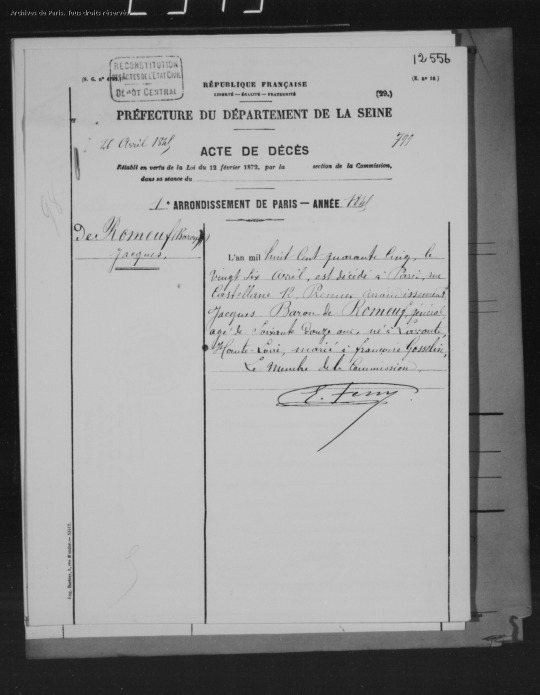
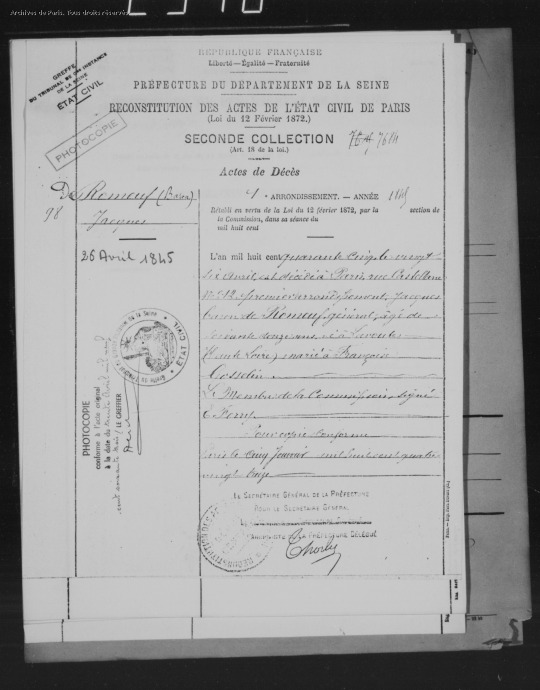
Paris Archives, État civil reconstitué (XVIe-1859), Cote 5Mi1 1330, p. 40-41. (10/03/2022)
#marquis de lafayette#la fayette#french history#french revolution#history#letter#24 days of la fayette#george washington#founders online#georges washington de lafayette#davoust#brune#murat#macdonald#dumas#napoléon#napoleon bonaparte#jean-louis romeuf#jacques-alexandre romeuf#jules germain cloquet#virginie de lafayette#adrienne de lafayette#adrienne de noailles#albert noailles#1766#1789#1792#1790#1797#1798
9 notes
·
View notes